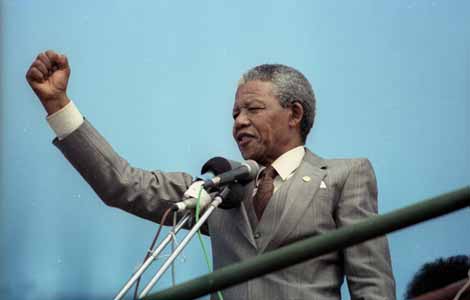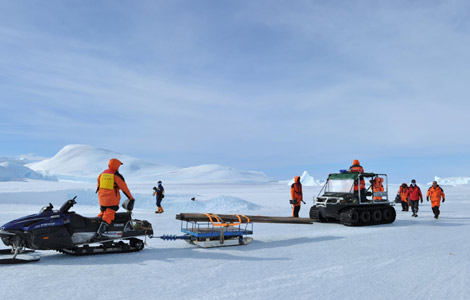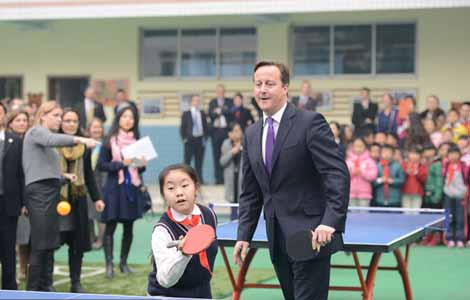San Francisco mayor lauds Optics Valley
Updated: 2013-12-06 01:14
By Liu Kun in Wuhan and Zhao Yanrong in Beijing (China Daily)
|
||||||||
Silicon Valley has enhanced its ties with China's Optics Valley in Wuhan because development in Central China benefits the United States.
San Francisco Mayor Edwin Lee made the remarks in late November while on his third trip to China this year. Lee — the first Asian-American elected to lead the city — was making his first visit to Wuhan, the capital of Hubei province.
With Tang Liangzhi, his Wuhan counterpart, the two mayors witnessed the signing of agreements to set up liaison offices that will enable more exchanges and cooperation between the two cities.
"Partnerships between cities can be translated to jobs and economic growth," Lee said.
Compared with his earlier visits to Beijing and Shanghai, the mayor said he found San Francisco's friendship with Wuhan interesting and unique.
"The two valleys are both high-tech towns. Silicon Valley is the world center for chip-making, and Optics Valley has the largest production for optical-electronic products in China," he said.
The mayor also said that he had gained a deep appreciation of Optics Valley and was aware of its future prospects while discussing with some top US companies — including IBM, Hewlett-Packard and Synopsys — their developments already under way in Asia.
With a long history and important location, Wuhan also has an advanced transportation system and education resources. Since Hubei already has been a driving force in Central China's development, the province offers great potential within China's economic development, Lee said.
Even though China's annual economic growth slowed down to single digit, Wuhan is still developing rapidly as China pays increasing attention to central and western China's development.
The Wuhan government said the city's GDP has already had a year-on-year growth of 10 percent in the first three quarters of this year.
"What's important for us is the opportunities brought by the development of Central China. San Francisco is definitely catching the wave," he added.
Regional development usually follows a trend from coastal regions to inland, the mayor said. He said he believes that Wuhan will be another Shanghai in the near future.
Nearly 80 universities are located in Wuhan, where 1.2 million college students give the city the world's largest university population.
"I am glad that they have so many universities here. The talent in the city can support many good industries and great innovations, whether it's in the arts, technology, science or healthcare," Lee said.
Wuhan and San Francisco have a great deal in common, and have all elements to become great cities, he added.
As the first Asian-American mayor in the history of San Francisco, a city in which more than one-fifth of the residents are ethnic Chinese, Lee expects to enhance friendship with Wuhan through more direct flights between the two cities.
"The flights have to stop by Shanghai, and the journey lasts as long as 10 hours," he said, urging the two cities to achieve direct flights to shorten the traveling time.
Most Viewed
Editor's Picks

|

|

|

|

|

|
Today's Top News
In 5 years, the world's top winemaker?
Nelson Mandela has died: President Zuma
Broader economic prospects pursued
Asian Americans' spend more in US
California-China trade gets boost
Cornering e-commerce fraud
FDI in 2014 looks cloudy
Education reform to reduce reliance on gaokao
US Weekly

|

|













